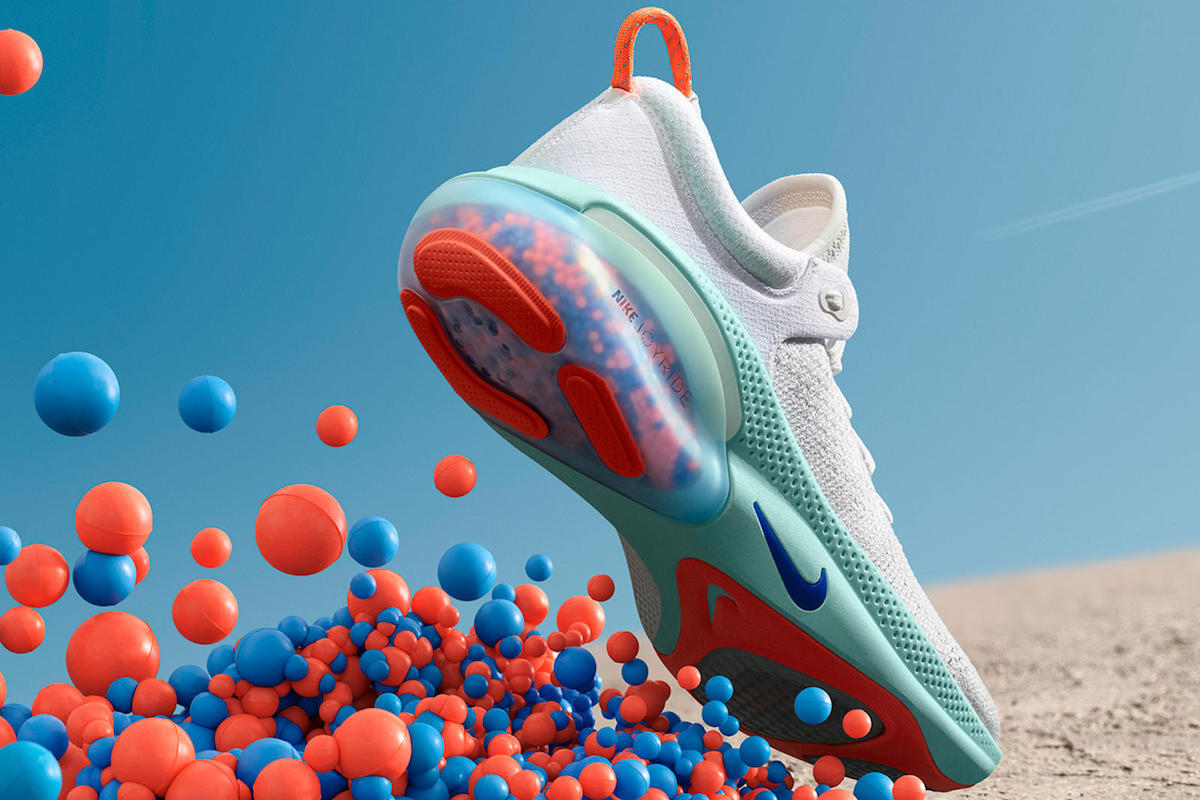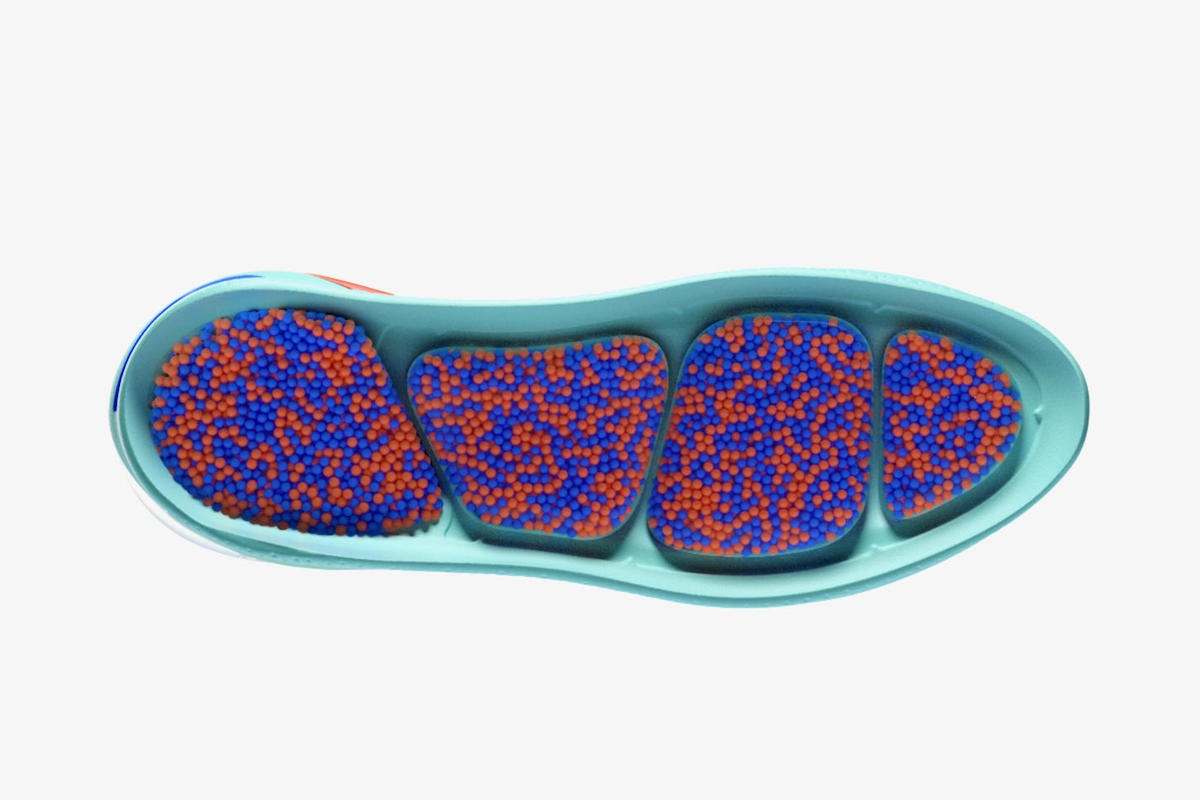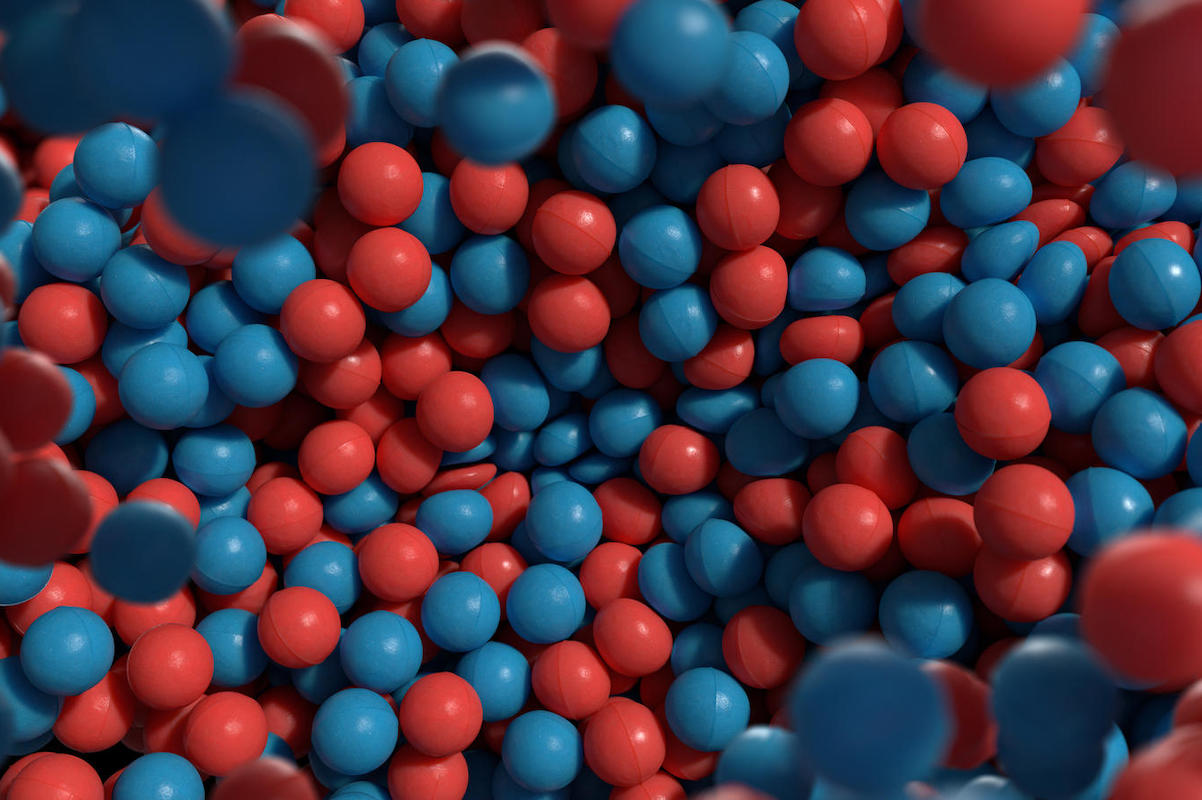Nike has taken the wraps off a new running shoe technology that it calls Joyride. This new type of cushioning uses an innovative approach to protecting a runner’s feet and legs, potentially delivering improved performance in terms of impact absorption, while also offering efficient energy return. That translates to fresher, faster legs on long-distance runs, which should help prevent injuries and speed recovery. But it didn’t take long for the new product to catch the attention of environmentalists, who were quick to question Nike’s use of microplastics when creating this new product.
At the heart of Joyride is a newly designed midsole that has four distinct sections or “pods.” Those pods are each filled with thousands of tiny plastic TPE (thermoplastic elastomer) beads that have been created specifically to absorb impact. The size of the pod, and the number of beads that are inside of it, completely depends on its location. For instance, the heel has a larger pod filled with thousands of the tiny beads, while the forefoot has a smaller number as less cushioning is needed there.
Nike says that Joyride will conform to the foot of the runner, giving a sense that the shoe was made specifically for their feet. If the marketing materials are to be believed, the shoes will offer a very comfortable and supportive ride, giving runners a sensation that is “almost like running on bubbles.” The sports apparel and footwear manufacturer is so confident in the new technology that it will be rolling it out in new shoes over the next few weeks. The Nike Joyride Flyknit, which is a general purpose running shoe, went on sale for Nike Members on July 25 and will see a global release on August 15.
The decision to use microplastics in the creation of the Joyride system has raised eyebrows, with some questioning what happens to the TPE beads when the shoe is no longer in use or starts to break down. It has become increasingly clear that those materials are finding their way not just into the ocean, but the air we breathe as well, creating a potential healt hazard for millions of people. Considering that running shoes should be replaced every 300 to 500 miles, the potential for a lot of Joyride shoes ending up in a landfill is high.

In response to the criticism of Joyride, Nike released the following statement:
“Nike is committed to creating a more sustainable future and protecting the future of sport. Like all athletic footwear, Joyride can be recycled through Nike’s Reuse-A-Shoe program and transformed into new products. We have also been actively exploring the source of microfibers and working with the sporting goods industry and other industries to understand the issue and identify long-term scalable solutions.”
Nike has indeed taken proactive steps to protect the environment, and the company is correct in reminding runners they should be recycling their shoes anyway. The Joyride doesn’t change that, even if its tiny beads are an unusual choice as a new form of cushioning.






